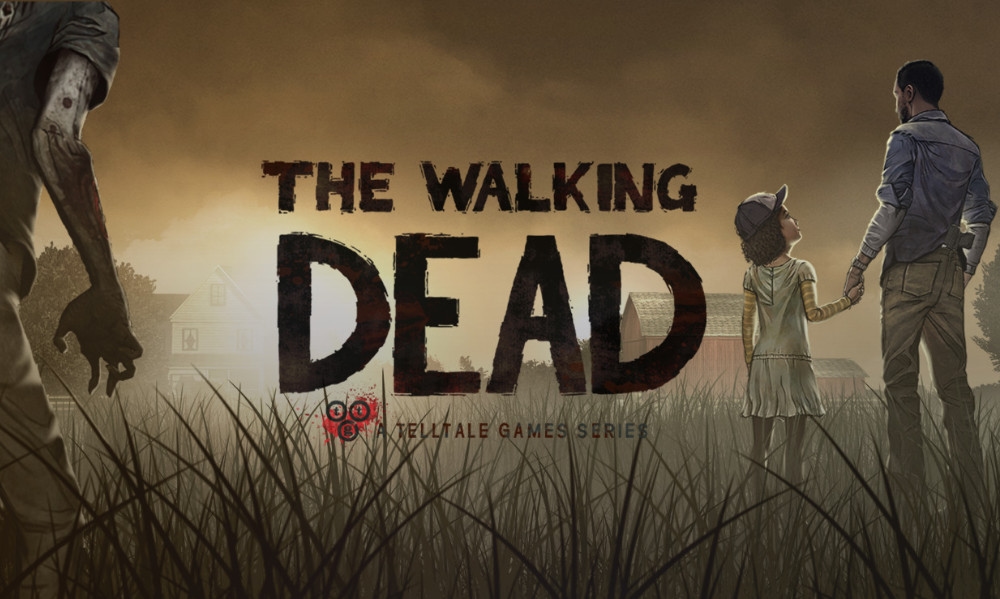
The Walking Dead: The Game – 5 sezon gry?
O grze
The Walking Dead: The Game to seria gier, która została podzielona na sezony, z których każdy obejmuje pięć odcinków, które były wydawane w kilkutygodniowych odstępach. Pierwsza odsłona serii zadebiutowała w 2012 roku i uznano ją za jeden z najlepszych tytułów tego okresu, otrzymując łącznie ponad 80 nagród dla gry roku.
Krótko o fabule gry
W pierwszym sezonie, fabuła gry skupiała się na losach skazanego za morderstwo Lee Everetta, który we wczesnych dniach apokalipsy zombie na mocy zbiegu wydarzeń, zaczyna sprawować opiekę nad ośmioletnią Clementine. Recenzenci i gracze jednogłośnie wychwalali tytuł za świetnie napisane postacie i zapadający w pamięć finał. ![]()
W 2013 roku rozpoczęła się publikacja drugiego sezonu, który kontynuował wątki rozpoczęte w poprzednich epizodach. Tym razem gracze kierowali poczynaniami Clementine - już nieco starszej i bardziej samodzielnej. W tym sezonie Clementine rozpoczyna opiekę nad AJ-em, chłopcem, którym wcześniej ona i inni członkowie grupy opiekowali się, po tym jak jego matka, Rebeca, zmarła z wycieńczenia po porodzie, a ojciec został zabity przez Carvera, który był jednym ze złych charakterów w grze. ![]()
Na koniec 2016 roku ogłoszono emisję trzeciego sezonu ( The Walking Dead: A New Frontier),w którym Clementine powraca jako grywalna postać, ale głównym bohaterem sezonu jest oryginalna postać o imieniu Javier "Javi" Garcia. W trzecim sezonie, Javi i Clementine muszą współpracować z innymi ocalałymi, aby uratować swoje rodziny z grupy, której Clementine była wcześniej członkiem. Przed spotkaniem z Garcią, AJ został zabrany od Clem przez Nowy Ład (New Frontier) za kradnięcie leków, które ona potrzebowała dla chłopca. Pod koniec sezonu Clementine wyrusza na odzyskanie AJ-a, zostawiając Gracię i jego rodzinę.![]()
W sierpniu 2018 roku rozpoczęła się zaś publikacja czwartego sezonu. Clem odzyskała AJ-a. Później, w snach jakie miała, dowiadujemy się gdzie przebywał AJ podczas nieobecności Clem i jak ona go znalazła. Wtedy ta dwójka kontynuuje swoje przygody, napotykając na przeszkody. Po wypadku samochodowym jaki miała, budzi się w szkole dla młodzieży z problemami, Ericson. Clem oraz AJ zostają tam, starając się zaprzyjaźnić z jej mieszkańcami.
Pod koniec sezon ten zostawił nas z momentem, w którym podczas ucieczki przed hordą, szwendacz gryzie ranną nogę Clementine. Ona i AJ schronili się w stodole Jamesa, która szybko zostaje otoczona przez walkerów. Osłabiona Clementine namawia AJ-a do ucieczki na własną rękę, pokrywając się w flakach szwedaczy, a następnie prosi go, aby albo ją zabił, albo zostawił ją, aby się zamieniła w jednego ze szwendaczy. Niezależnie od jej prośby, AJ zamachuje się na nią toporem, który nabył. Każdy gracz w tamtym momencie myślał, że AJ zabił Clementine. Jakiś czas później, okazuje się, że AJ zdecydował się amputować nogę Clementine, ratując jej życie, by później w końcu znaleźć spokój i wrócić do szkoły Ericson z internatem dla młodzieży z problemami, w której wcześniej przebywali.![]()
Czy możemy się spodziewać sezonu piątego gry?
Spekulacje, które powstały wokół powstania kolejnego sezonu z serii The Walking Dead: The Game są przeróżne.
Telltale na swoim twitterze opublikowało 21 lutego 2023 roku artykuł z 16 lutego, w którym podane są znaczące informacje.
Artykuł podaje, że Telltale zainwestowało 8 milionów dolarów na finansowanie serii The Expanse, The Wolf Among Us 2 oraz na niezapowiedzianą grę. Czym może być "niezapowiedziana gra"? Fani serii gry o "żywych Trupach" (polskie tłumaczenie tytułu gry) doszukują się czy rzeczywiście chodzi o serie gier The Walking Dead.
Cytat z artykułu Prezesa Skybound, Davida Alperta brzmi : "Telltale i Skybound mają długą i niesamowicie udaną wspólną historię, która na zawsze zmieniła sposób opowiadania historii w grach wideo. Minęło nieco ponad dziesięć lat, setki milionów dolarów i ponad 100 nagród Game of the Year, odkąd Telltale wydało uznany pierwszy tytuł z serii The Walking Dead. Nadal wierzymy w siłę gier narracyjnych, a ta inwestycja pozwoli nam wspierać Telltale w opowiadaniu jeszcze bardziej niesamowitych historii." Te słowa dały fanom gry, między innymi mnie, nadzieję na zobaczenie kolejnego sezonu gry.
Popatrzmy na odpowiedzi jakie rzucają pracownicy Telltale na pytania o możliwości kontynuacji gry.
Więc to zaś zabiera tej nadziei, jaka wytworzyła się u fanów po zobaczeniu wypowiedzi Davida Alperta. ![]()
Podsumowanie
Moim zdaniem, szansa, że w przyszłości zobaczymy kolejny sezon z serii gier The Walking Dead jest możliwa. Co prawda w jak dalekiej przyszłości może wyjść ten sezon, zostaję znakiem zapytania. Całym sercem pokochałam tą grę i bardzo chciałabym zobaczyć jej kontynuację i przygody głównych bohaterów serii.